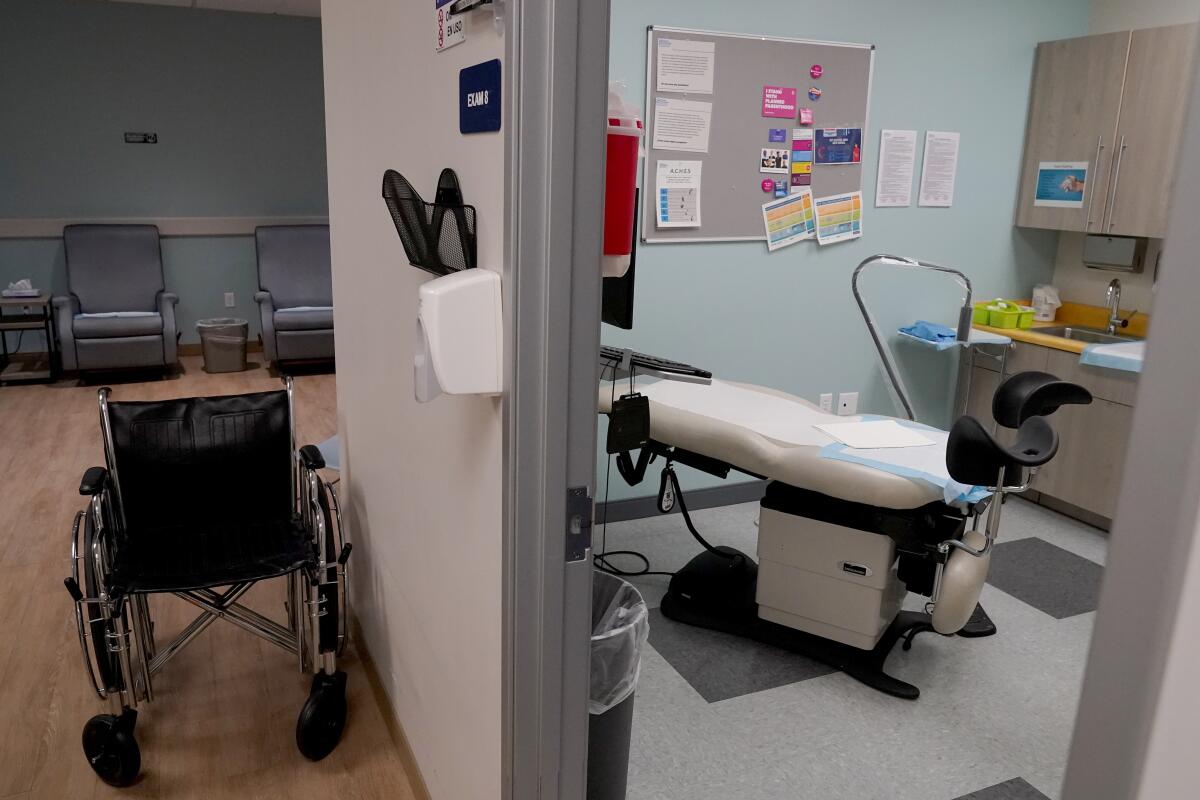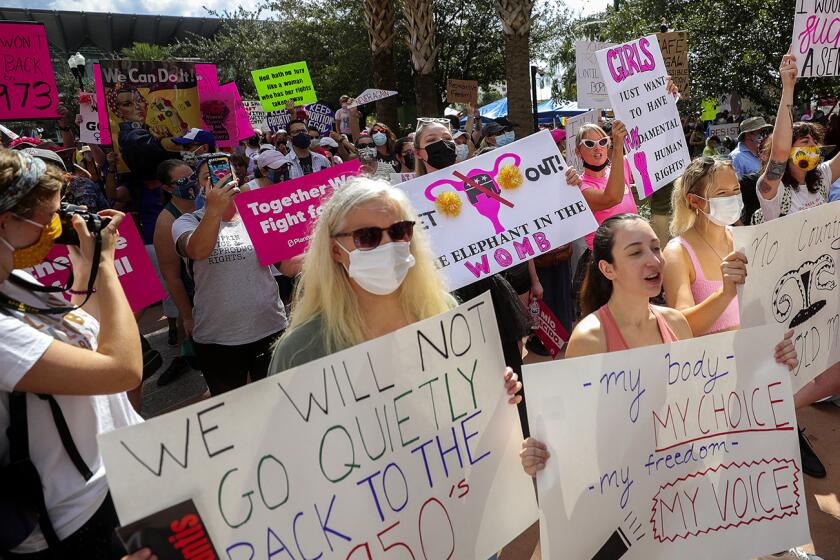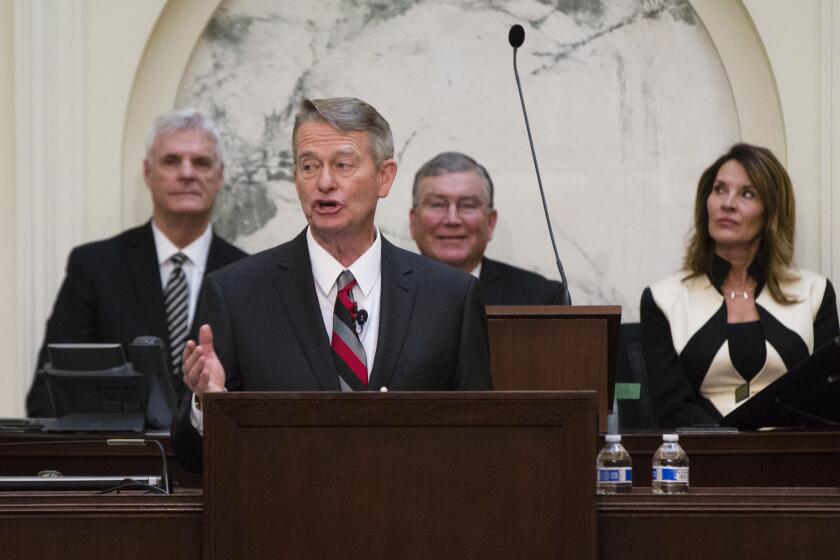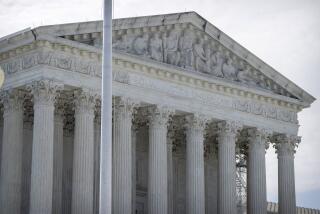Arizona can enforce an 1864 law criminalizing nearly all abortions, court says

PHOENIX — An Arizona Supreme Court decision on Tuesday that could end virtually all abortions in the state puts the issue front and center in a 2024 battleground that will play a crucial role in deciding the next president and the Senate majority.
Democrats immediately pounced on the ruling, which will allow a law first passed in 1864 to go into effect. It permits doctors or others to be prosecuted for performing an abortion at any time unless the woman’s life is in danger, and does not include exceptions for rape or incest. Democrats blamed former President Trump for the loss of abortion access after the U.S. Supreme Court, reshaped by his three appointments, ended a federally guaranteed right to abortion and enabled the enforcement of state laws such as Arizona’s.
“Today’s decision to reimpose a law from a time when Arizona wasn’t a state, the Civil War was raging and women couldn’t even vote will go down in history as a stain on our state,” Democratic Atty. Gen. Kris Mayes said in a statement. She pledged that prosecutors in her office would not enforce it.
Trump said abortion access should be decided by the states. But that has been more complicated than it sounds.
The decision will give Arizona the strictest abortion law of the six top-tier battlegrounds heading into November’s election. That could give a political advantage to President Biden and his allies, who are campaigning on restoring abortion rights as Trump has avoided endorsing a national abortion ban and openly warned that the issue could lead to Republican losses.
“We will continue to fight to protect reproductive rights and call on Congress to pass a law restoring the protections of Roe v. Wade,” Biden said in a statement shortly after the court’s ruling was announced.
Georgia outlaws abortions about after six weeks, while Nevada, Wisconsin, Michigan and Pennsylvania allow abortions up to 20 weeks or later.
Arizona Gov. Katie Hobbs, also a Democrat, said the ruling “only serves to create more chaos for women and doctors in our state,” pointing blame at Republicans for a “never-ending assault on our basic rights.”
The court has paved the way for a ban after six weeks of pregnancy, before many women know they are pregnant, but voters will soon have a say.
The ruling comes a day after Trump said abortion limits should be left to the states and declined to endorse a national ban after months of mixed messages and speculation.
Voters have consistently backed abortion rights when the question is put directly to them, including in conservative states such as Kansas and Kentucky. The issue is credited with helping Democrats exceed expectations in the 2022 midterm election.
In Arizona, the political fallout of Tuesday’s ruling could be extensive. Biden has put abortion rights at the center of his campaign, as has Democratic Senate candidate Ruben Gallego. It will intensify efforts by abortion rights advocates to put a ballot measure in front of voters that would restore the right to an abortion.
“This will supercharge signature collection,” said Ezra Levin, co-founder of the progressive group Indivisible, which is involved in the effort to add an Arizona ballot measure this fall enshrining the constitutional right to abortion.
Emergency Medical Treatment and Labor Act mandates that emergency rooms treat all arriving patients. The antiabortion crowd wants to exempt emergency abortions. The Supreme Court is giving them a hearing
Levin said supporters have already collected the 384,000 valid signatures needed by July 4. Now, he said, they’re aiming to hit 800,000 signatures by July.
The law will probably give a boost to Democrats seeking to win the legislative majority in Arizona, giving them power over election laws in a battleground state.
According to AP VoteCast, a broad survey of the electorate, 61% of Arizona voters in the 2022 midterm election said abortion should be legal in most or all cases. Just 6% said it should be illegal in all cases.
Two-thirds of midterm voters in Arizona said the Supreme Court’s overturning of Roe vs. Wade was an important factor to their vote for that election.
The Supreme Court’s antiabortion conservatives will decide whether to restrict abortion pills, including in California and other states where abortion is legal.
About 6 in 10 Arizona voters in that election said they would favor a law guaranteeing access to legal abortion nationwide.
Officials at Planned Parenthood said they would continue to provide abortions up to 15 weeks, as allowed by the Arizona courts, but will have to wind them down in the coming months.
The old law was first enacted among a set of laws known as the “Howell Code” adopted by the 1st Arizona Territorial Legislature in 1864, decades before Arizona became a state in 1912. Legislative researchers said it remained in the penal code in 1901 and was readopted in subsequent rewrites, including in the 1970s.
Cooper writes for the Associated Press. AP writers Steve Peoples in New York and Linley Sanders in Washington contributed to this report.
More to Read
Sign up for Essential California
The most important California stories and recommendations in your inbox every morning.
You may occasionally receive promotional content from the Los Angeles Times.














